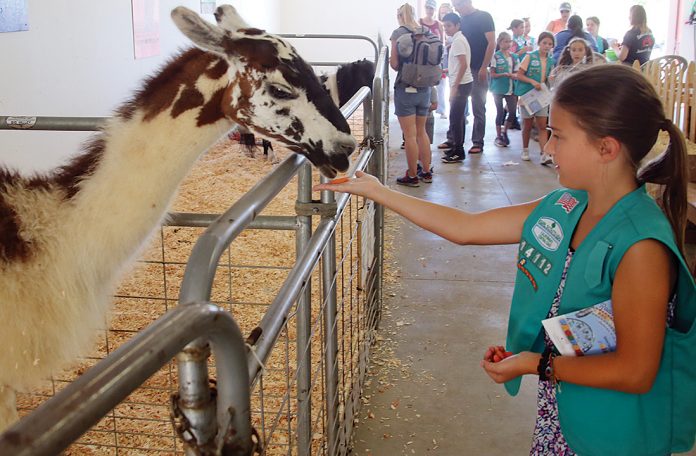
WATSONVILLE—Every year on the outskirts of Watsonville, late summer brings the intoxicating aroma of fried food, along with the sweet summer cacophony of carnival rides, livestock and giant, jubilant crowds.
But those voices will fall silent this year at the Santa Cruz County Fair, after fair manager Dave Kegebein announced Wednesday that this year’s event has been canceled.
The much-anticipated fair—which was slated to run from Sept. 16-20—is the latest casualty in the growing battle to stop the spread of the novel coronavirus.
The announcement came after weeks of deliberation by fair management and the Board of Directors, all of whom were hoping that the threat from Covid-19 would abate in time to allow the fair to proceed.
Kegebein said he was trying to plan a drive-thru fair, a model that organizers could not make work.
“Obviously this has been a conversation for some time,” he said. “And we thoroughly explored a drive-thru fair option. But between security concerns and volume we just couldn’t really figure out how to make the numbers work.”
The news likely comes as a blow to dozens of nonprofits which depend on proceeds from the fair to fund their activities throughout the year.
“It’s going to hurt us—there is no doubt about it,” said Roland Hedgepeth, who serves as treasurer for Corralitos Padres. That organization raises as much as $11,000 selling Corralitos sausage meals, Gizdich pies and Martinelli juice. Proceeds from those sales go to scholarships, youth clubs such as the Boy Scouts and local sports.
“It’s sad for the community,” he said. “We put all our money back into the youth.”
The Padres’ booth typically draws long lines of hungry fair attendees.
“It’s more than just making money,” he said. “It’s a community event. I’ve been going for 60 years.”
“We’re looking forward to next year, that’s all we can do,” he added.
Pajaro Valley High School Athletic Director Joe Manfre said the fair pays students to work during the event which raises about $7,500 that is used to purchase uniforms, repair old and buy new equipment.
Now, Manfre said he will now have to turn to different sources for financial help.
“I know people in the community are very generous and understanding of the importance of sports programs,” he said.
Watsonville High School agriculture teacher and Future Farmers of America advisor Paulina Correia said that the live auctions during the fair allow young members to recoup their out-of-pocket expenses from raising their animals.
Purchasing pigs and sheep ranges from $300 to $1,000, Correia said, and steer cost about $1,200. Feed can cost as much as $1,000, she added.
What also must be considered is the twice-a-day work that goes into raising their animals.
“We still have students with animals ready to go to the fair,” she said.
The fairgrounds is now planning on an online auction, Correia said, a first-of-its-kind which could be the answer.
“Hopefully our students will at least break even on their projects,” she said.
Kegebein said that the loss of this year’s fair—and the possibility of future changes to similar events wrought by the virus—will likely take a “slow road to recovery.”
“Anyone running an entertainment mass gathering venue will have a long ride before we are able to conduct economically viable activities,” he said. “We just have to accept the situation we’re in. It’s brutal.”












